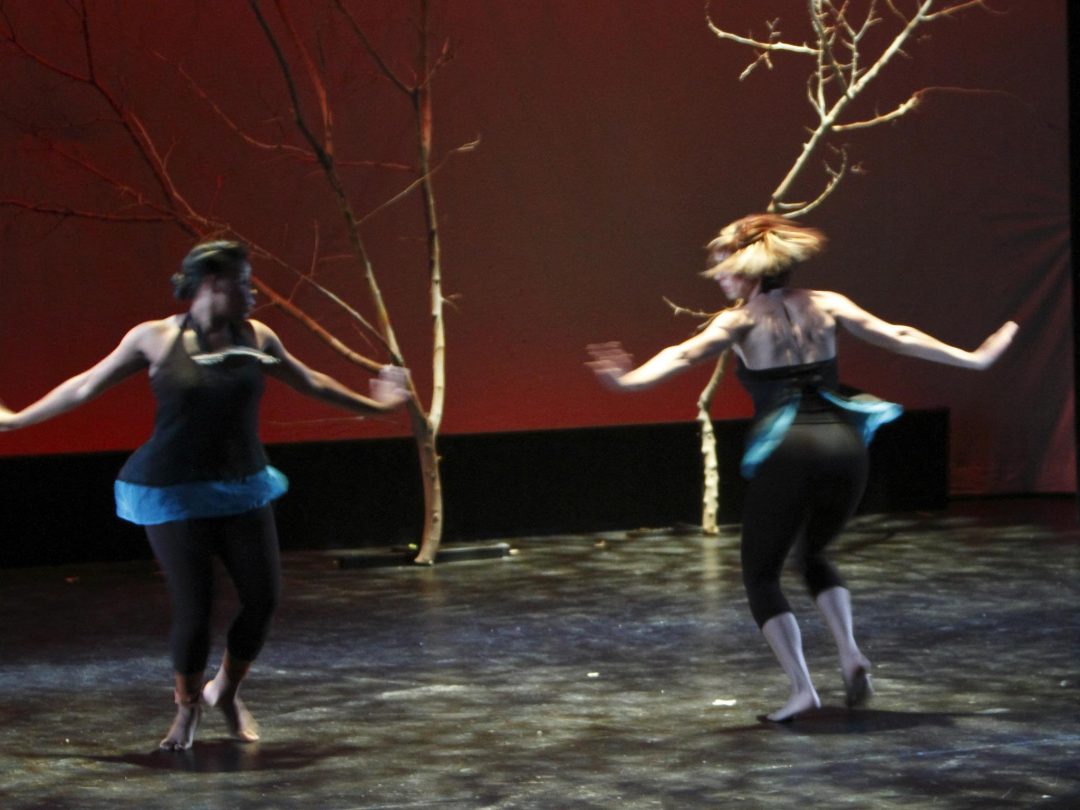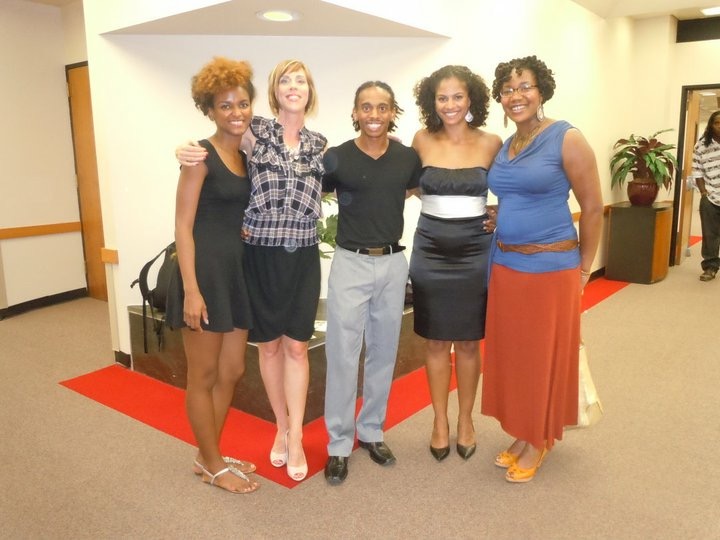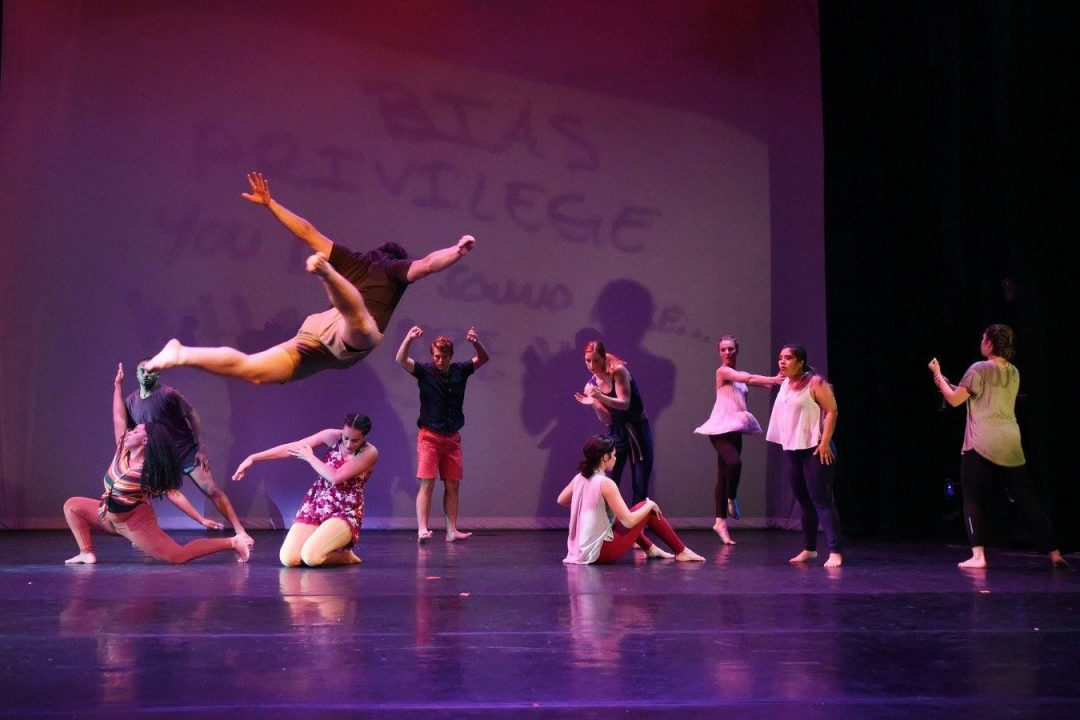Drawing from European and African-derived dance traditions is a matter of fact for the majority of American dance artists, but it is rare that any of us acknowledge the power dynamics at play where we train, create, and perform. Acts of reciprocity are too few amid widespread acts of marginalization and cultural erasure. Where inequities and disparities prevail, we have enormous work to do. Whatever it takes- speaking up, showing up, sitting down, or stepping aside- we must stay the course and build our stamina. As a white woman born in the United States, I have had to disavow myself of countless, deeply-held notions. Deep self-examination is a practice I am obliged to maintain.
Given the strength of the backlash against the nationwide reckoning on race that occurred in the summer of 2020 following the murder of George Floyd, the urgency of the Movement for Black Lives has only grown. The International Association of Blacks in Dance released a statement entitled, “I Said, Can You Hear Me Now?” It begins, “White American Dance Community, you have designed the system of White supremacy, privilege, institutional racism, microaggressions, oppression and stood guard over them. It is time that you face it, own it, unlearn it, and dismantle it.”
An Artivist Mentality
As a white jazz dance practitioner, I sense an urgent need for accountability among those of us who pursue professional engagements as artists and teachers. Reparations are needed in order to be in true community with the Black members of our jazz family. In the meantime, we must pledge responsibility for our everyday actions.
Lindsay Guarino, Kimberley Cooper, and Brandi Coleman of the National Dance Education Organization wrote a Call to Action in the form of an open letter to white jazz dance artists & educators, which includes ten vows. This is one:
When I practice African-derived dance, I vow to honor, listen to, and make space for Black voices of the past and present, making sure our actions support but don’t take the place of or erase Black voices.
White Folx, Let’s Lean IN
White folks have to lean in even when we receive push-back. We cannot expect accolades for doing things right. Black and BIPOC people experience the grueling effects of racism every day.
Our struggles are intertwined with our fellow citizens. To lift up the work of Dr. Bettina Love, anti-racist white people must become co-conspirators and show up with undying stamina. As Rev. Dr. Martin Luther King, Jr. observed in his Letter from Birmingham Jail, we are all “tied in a single garment of destiny.”
“When you have only ever experienced privilege, equality feels like oppression.”
― Adam Rutherford

Thanks and Praise
I have been incredibly fortunate to experience the pioneering theories and philosophies of the inimitable artist-scholar Katherine Dunham. Once a social science major as an undergraduate at the University of Michigan, I became deeply curious about her work. In the early 2000s, I began to attend the Dunham Technique Seminar in East St. Louis, Illinois, the city where Katherine Dunham had settled after her years of touring. There, she established The Performing Arts Training Center, where many of my teachers had studied.
I owe tremendous gratitude to my community of Dunham Technique instructors, who have been there for me all these years. Dr. Albirda Rose and Dr. Catherine Scott were the ones who first invited me to the Dunham Technique Seminar. Penny Godboldo, from my home state of Michigan, along with Rachel Tavernier and Patricia Wilson, have been there every step of the way. Praises up to “Baba Theo” Theodore Jamison, a gifted protege of Ms. Dunham from East St. Louis, who passed onto the ancestral world in November 2019.
If you would like to pour into the fountain of talent and beauty that is the arts community of East St. Louis, Illinois, please consider supporting The Katherine Dunham Center for Arts and Humanities.

In addition, I want to offer gratitude to the talented jazz dance artists, scholars, and educators of the National Dance Education Organization community who have done work to raise our collective voice and demand change in the form of anti-racist action, including Melanie George, Carlos Jones, Moncell Durden, Karen Bradley, S. Ama Wray, Lindsay Guarino, Patricia Cohen, Brandi Coleman, and Barbara Angeline.
Thank you Alicia-Lynn Nascimento Castro for crucial conversations and critical realness.
“As long as racism exists to ruin the lives of countless people of color, it should be something that upsets us. But it upsets us because it exists, not because we talk about it. And if you are white, and don’t want to feel any of that pain by having these conversations, then you are asking people of color to continue to bear the entire burden of racism alone.”
― Ijeoma Oluo, So You Want to Talk About Race
Thank you Walter Bergman, of the Unitarian Universalist Fellowship of Grand Rapids, for your sacrifice and for being my early role model to see a just and civil society achieved. See https://www.nytimes.com/1999/10/10/us/walter-bergman-champion-of-civil-liberties-dies-at-100.html
Racial Justice Resources for Dance
Rather than starting from scratch, I’d like to recommend the following organizations’ websites where they have provided excellent resource lists.
